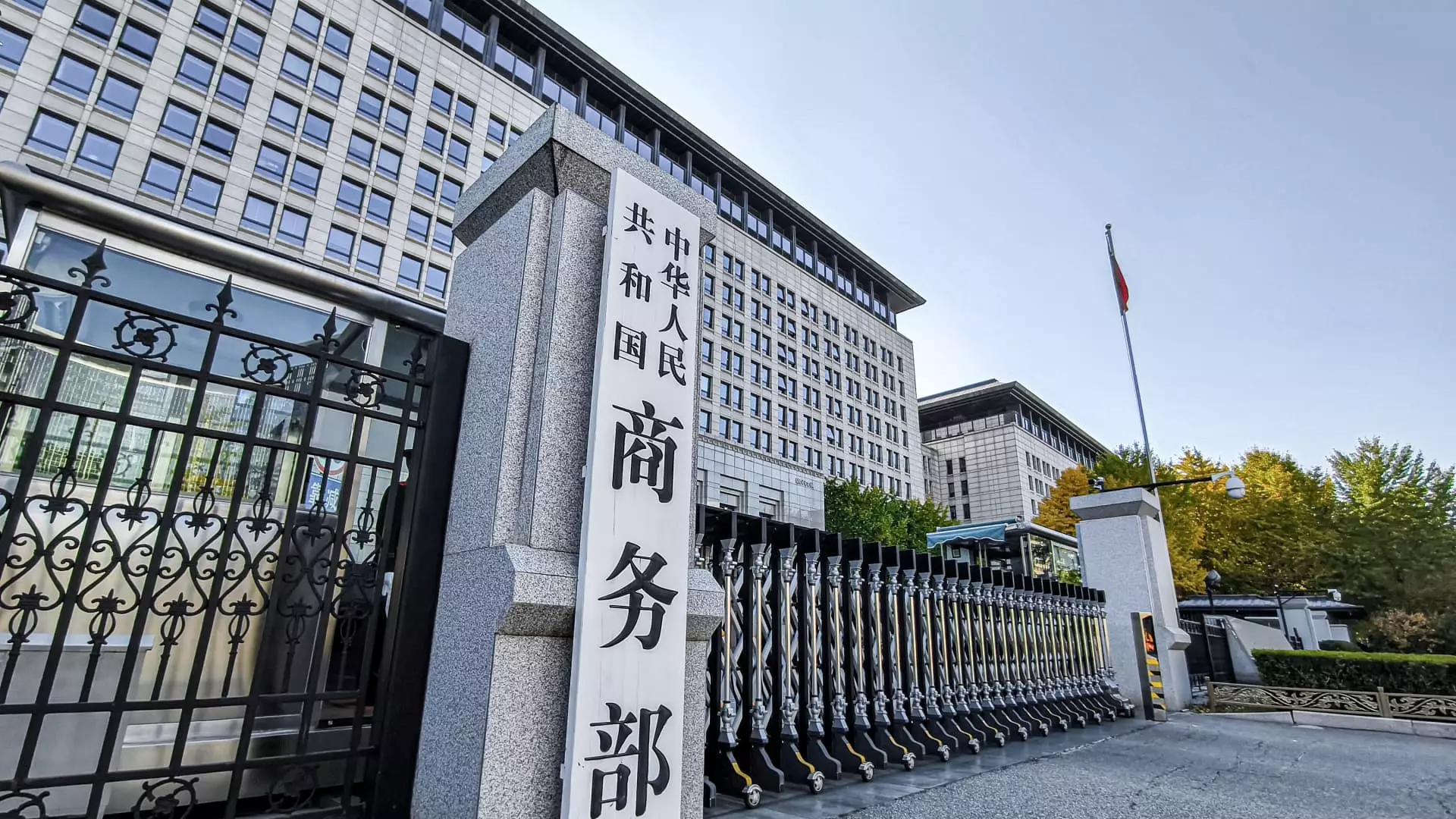In a bold move reminiscent of historical bullies, the U.S. government, under President Donald Trump’s directive, has initiated a barrage of tariffs that is shaking the foundations of international trade. The aggressive imposition of tariffs—34% on China, 20% on the European Union, 46% on Vietnam, and 32% on Taiwan—signals a new era where diplomatic negotiations are sidelined for unilateral economic aggression. Trump’s administration has cast these tariffs as necessary measures for protecting American interests, yet they appear more like reckless gambits that could escalate into a debilitating trade war rather than thoughtful policies aimed at sustainable economic growth.
The Chinese Response: An Unyielding Stance
China, reacting with characteristic defiance, has labeled these tariffs as “unilateral bullying practices.” The Ministry of Commerce, through its spokesperson, has not only condemned the actions of the United States but also questioned their adherence to international trade norms. This highlights a profound tension in global trading relations: while the U.S. perceives its actions as protective, other nations view them as a direct threat to their economic stability and rights. The idea that the U.S. could impose tariffs based solely on subjective assessments undermines global commerce and could lead to long-term damage for all parties involved, including American consumers who will ultimately share the burden of these punitive measures.
A Chorus of Dissent: Global Alliance Against Tariffs
Other nations have rallied in solidarity with China, showcasing the wider implications of Trump’s policies. Canadian Prime Minister Mark Carney, while invoking a sense of national pride, asserted that Canada would confront these tariffs “with purpose and with force.” Such statements reflect a burgeoning consensus among nations experiencing the fallout from U.S. tariffs. In South Korea, the acting President Han Duck-soo has proactively sought emergency measures to safeguard affected industries, particularly in the automobile sector, showing a determination to mitigate the impact of these unilateral decisions.
Furthermore, Australia’s Prime Minister Anthony Albanese termed the tariffs a “poor decision,” recognizing that these actions are not just economic strategies but also acts that may poison international relations. While he refrained from imposing reciprocal tariffs, his remarks underscore the complex diplomatic dance taking place, indicating that the U.S. is alienating its allies in pursuit of a narrow, isolationist agenda.
The Bigger Picture: Unintended Consequences
The prevailing sentiment among international leaders is one of disappointment, if not outright hostility. This isn’t just about trade; it’s about the U.S. positioning itself as a bully on the global stage, prioritizing short-term gains over long-term relationships. The ramifications of such a strategy extend beyond immediate economic consequences; they risk fostering animosity and distrust among nations that historically cooperated on economic fronts.
Dare we envision a world governed by fear and economic retribution, where nations retreat to isolationist policies? If U.S. tariffs provoke retaliatory measures from other governments, we may see a global economic structure that resembles a fractured landscape, where collaboration is sacrificed at the altar of nationalism. It’s a precarious moment in global trade that demands not just attention, but also action, lest we arrive at a catastrophic impasse.


Leave a Reply